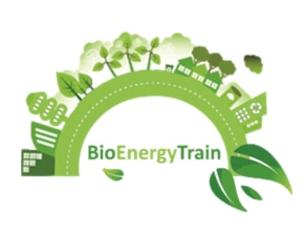BioEnergyTrain
The project aims to develop two new master’s curricula in key bioenergy disciplines – Biorefinery Engineer (BRE) and Bioresource Value Chain Manager (BVC) and training 3000 students, to linking business and HEIs on bioenergy education and to create regional outreach networks and quality standards.
Objectives:
As aligned with the SET-Plan’s needs analysis for European development, BioEnergyTrain has the following objectives:
- To address identified knowledge gaps through common training collaboration and best practices by clearly identifying the technology and knowledge chain for the development and leverage of European expertise. As identified by the SET-Plan there are two areas where expertise on the post-graduate level is urgently needed within the field of bioeconomy development: biorefinery engineers, and bioresource value chain managers.
- To bridge the gap between industrial innovation and education in order to improve the practical orientation of higher and professional education to enable the market up-take of innovative solutions for SET-Plan measures.
- To create a network of integrated research and industrial infrastructures and develop programmes on the integration of practical training modules at these installations in curricula.
- To create a forum for stakeholders within the bioenergy value chain from research, universities, industry and the public sector to exchange information on educational needs and share knowledge and experience.
- To create a ‘network of networks’, linking HEIs with stakeholders in their regional context, providing information, awareness raising and training opportunities as well as hands-on assistance for implementing bioenergy systems.
Coordinator: eseia
Partners: 15 partners from six EU countries in Consortium of HEIs, research centres, professional associations, and industry from the whole value chain.
Project results:
- Two European Master Programmes: Biorefinery Engineering (BRE) at the TU Graz and the Bioresources Value Chain Management (BVM) at the University of Twente.
- 19 BET course materials available.
- BET publication on ‘Theory and Practice of European Co-operative Education and Training for the Support of Energy Transition’ published in the Springer open-access Journal Energy, Sustainability and Society.
Download the Project Brief
Find out more: www.bioenergytrain.eu
This project has received funding from the European Union’s Horizon 2020 research and innovation programme under grant agreement N 656760.





